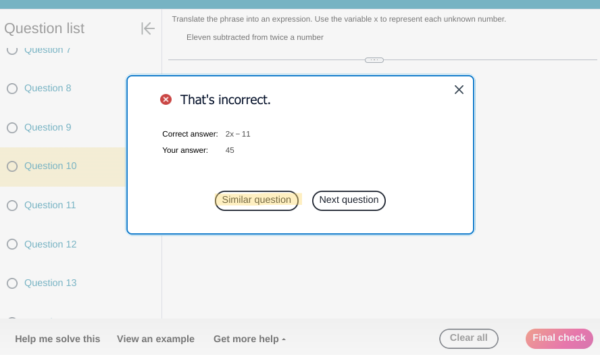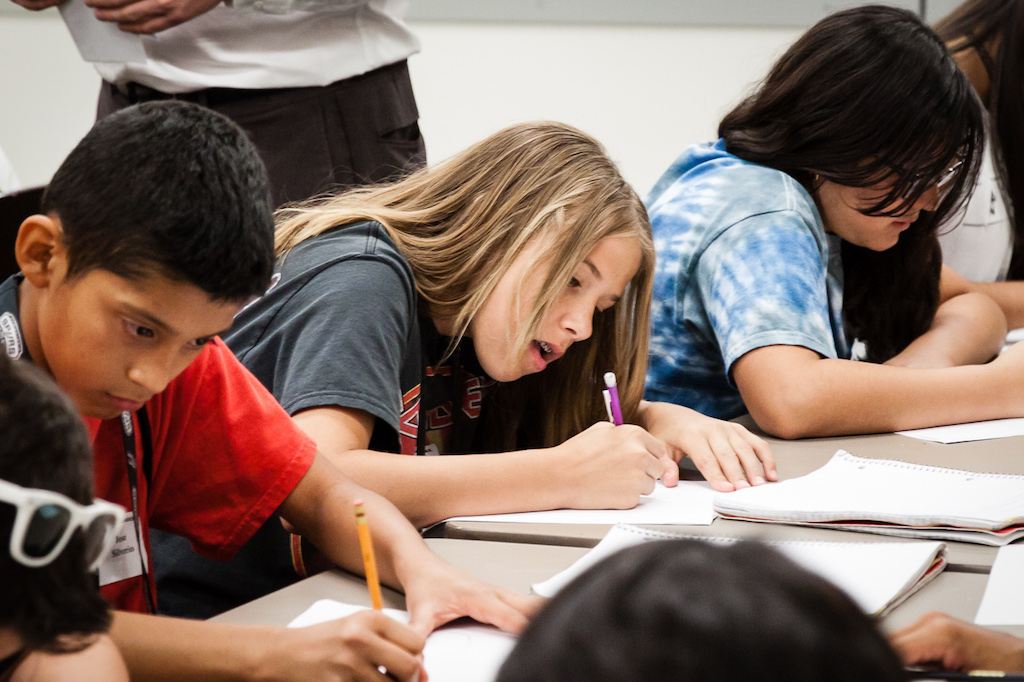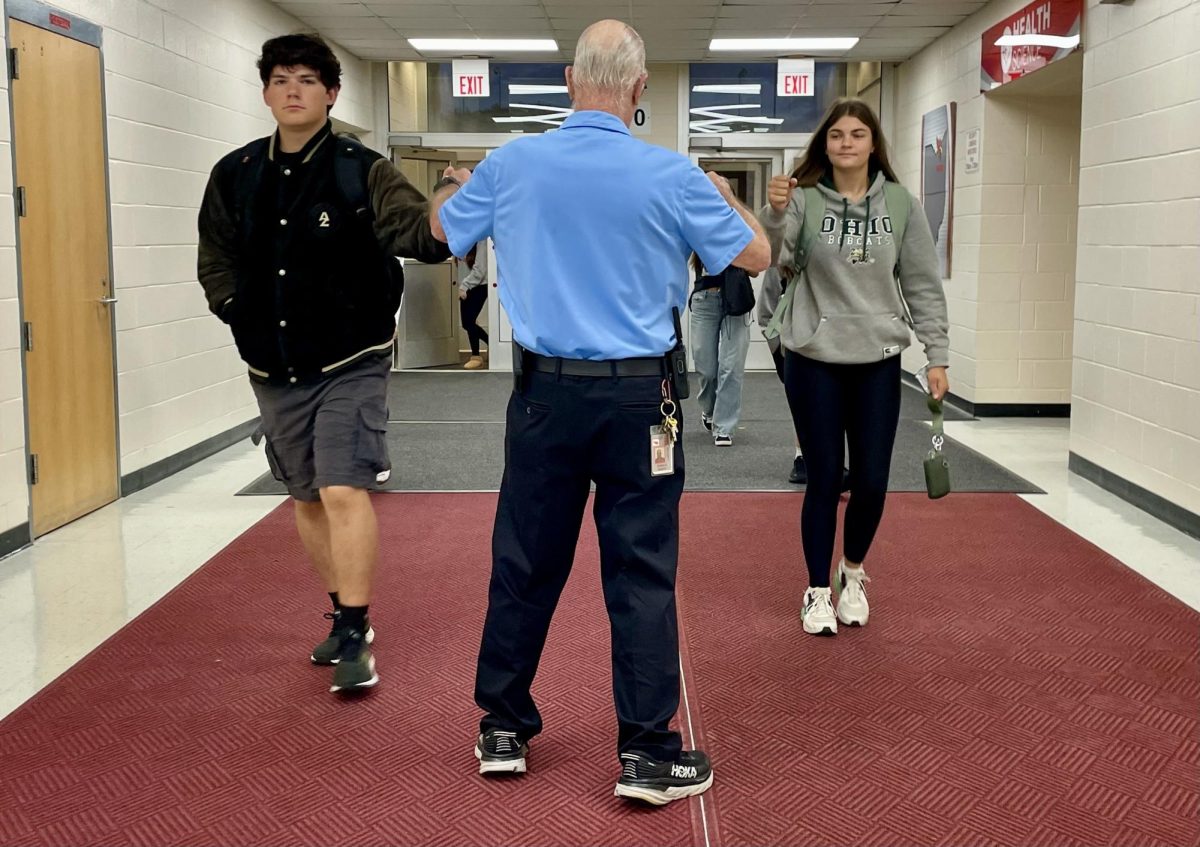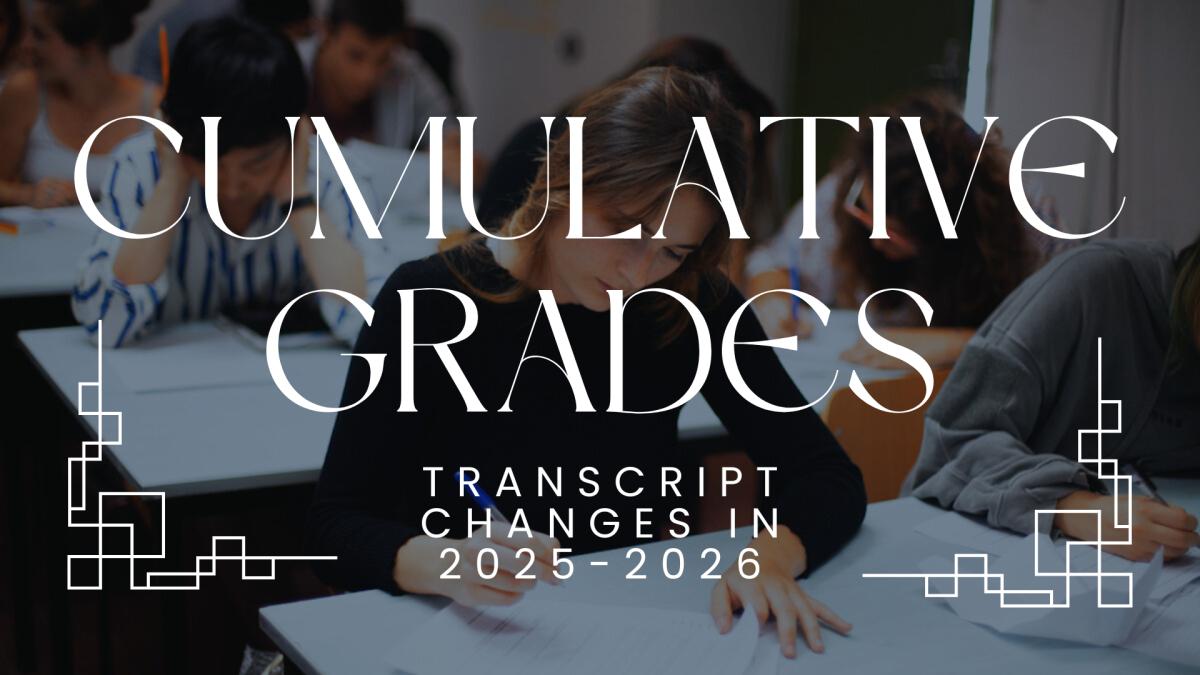If you’ve ever taken a test, you’ve probably noticed there’s a certain pattern.
You go to school and learn, but as the 1st or 2nd week of the unit ends, a test arrives. There’s a good chance you procrastinate and scroll on your phone worrying about how you should study, but you assure yourself you know enough to pass. Then the test day finally arrives. You’ve rushed a Quizlet while walking to class, and you’re ready to take the test. However, when you’re taking the test, your heart sinks to your stomach as you have realized you do not know how to answer the questions.
Does this sound familiar? Chances are it does, and you know just as well as anyone else this pattern must break. So this is how you’re going to study for next time.
Foremost, get away from your phone. Whether you’re in your room, study hall, or your dining room table, phones should not be nearby. The ideal situation is to give your phone to a sibling or parent and don’t let them give it back for 30 minutes. But, if no one is around, put it on do not disturb and put it in your book bag, ensuring it’s away from whatever study materials you’ll need. If you choose to listen to music, it should be calm and quiet. So this means artists like Taylor Swift and Metallica are out of the question. If you’re struggling to find something, Spotify and YouTube offer great study mixes.
Now that your environment is quiet, make sure it’s comfortable. According to Michael Kiener, a Medical professor, “Comfortability was assessed multiple times during one semester with undergraduate students and found student comfortability significantly increased across the course of the semester and significantly predicted effective learning.”
Just like college students you should also make sure you’re learning environment is comfortable so you can learn better. So, if you find yourself too distracted by discomfort, move to somewhere you can focus. More things you’ll find help is having a table to put your stuff on to create a similar environment to school. Also, having your materials organized by class or topic will prevent getting overwhelmed.
Now that there are no distractions, how should you actually approach studying?
For many students, the typical answer is to use apps like Quizizz, Kahoot, and Gimkit, but through these apps, you miss out on one of the best ways people memorize. Research at The University of Tokyo showed that by physically writing on paper the students had increased brain activity and showed more engagement.
While learning websites like Quizlet can be useful, it eliminates some of the use of your brain that you get from hand writing. However, you can still use Quizlet to help you. For example, using the terms provided to you, copy down the terms and make your own physical note cards. Not only will you be learning from writing the terms, but you also are more engaged by having something physically in front of you that you can touch.
You can also apply this concept to math. Occasionally, your teacher might assign homework online. If you have online homework, you can rewrite the problem and try solving it again. If the problems are on MyMathLab, there’s a button in the corner that reads “similar question”. By pressing this, it will show new problems, and you won’t lose credit.

If you have a test about something you read, finding summary videos is extremely helpful. A great example is if you take AP US history. After every chapter, there is a test or collaboration. Jocz Productions is a channel on YouTube and he has a review video for every chapter and period. These videos are really helpful in reviewing if you just want to be sure you remember the key ideas. However, you should never use review videos to replace the classwork you’re given. They make review videos under the assumption that you already have the basic understanding of a topic, so you won’t understand them without some previous knowledge. However, there’s still a lot more you could do to improve on your test.
Typically, after you finish a test, you’ll receive the paper you took it on. Now examine the paper and find where your areas of weakness were. For something like English, there is a writing formula and you can easily fix this mistake the next time. However, for something like math, you might notice you make a lot of the same simple adding or subtracting mistakes.
Once you have found everything you did wrong, write them down and correct it. The purpose of this is so that by fixing it, you can learn from your mistakes. If, on every math test you get, you go through and fix the error to get the right answer, you’ll slowly find that you make that same mistake less and less.
Now you might think this is great, but how is that supposed to work in a class where you don’t add to old knowledge? The answer is simple, go over your school work. For example, say for science papers you notice that every time you’re asked about gravity you get it wrong, you now know that you don’t understand gravity. So with this knowledge, you can look online for videos explaining gravity or ask your teacher for resources.
There are also additional things you can do that don’t involve studying. For example, doing homework. Many teachers at Mentor high school, especially those who teach a language or honors class, will assign homework daily. School days only have so much time, so the point of homework is so that you could either self reflect on the material or finish your understanding of a concept.
“Most often homework is for students to practice what we have covered in class,” says Mentor High School Math teacher, Mrs. Kerul. “Students need to think for themselves (without guidance) to see if they have mastered the content. This gives both the students and the teacher an idea of proficiency and what steps to take to either remediate or challenge. I also assign homework for practice. In math, practicing skills has proven to improve competency. Students who look back at the material from the day are more likely to remember it later on and not just for that class period. I don’t, however, believe that homework should take hours of time outside of the school day. I feel that if teachers assign small amounts of homework (even daily), students are more likely to complete the assignments.”
So while homework in the eyes of students seems unimportant, it is actually the part that can help you most to master skills for tests.
Another thing you can do that isn’t studying is ask questions and engaging in class. We’ve all seen where the teacher asks a question, but the whole class sits with blank stares. In fact, much of the class likely knows the answer but doesn’t say it. Students lose out on the opportunity to engage in learning.
There’s a similar effect when a student isn’t understanding something but doesn’t ask for help. In both cases, the students don’t talk for fear of embarrassment. But at Mentor, we assure you that this school is a safe environment where you should ask questions, because everyone here is here to help you. Asking questions and answering them is one of the key ways to retain information from class. By having someone other than the teacher speak it breaks up long lectures and helps everyone pay attention.
All in all, Mentor’s school system is set up so you have access to every resource you might need. So take advantage of the school’s generosity and work hard. With all these things combined, you’re certain to see the results you hope for.













